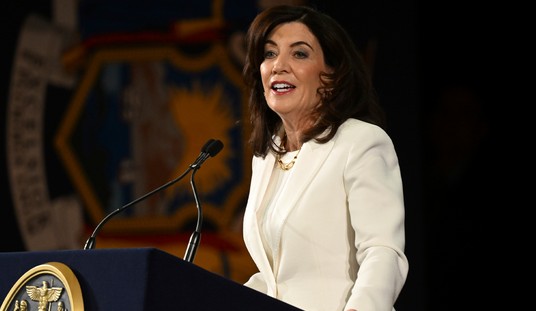One of the most bizarre things I have noticed in recent years is that many people have lost their sense of proportion.
For instance, the January 6th riot was bad, but it was hardly an “insurrection.” It wasn’t even nearly as bad as the 2020 riots.
Insulting somebody is bad, but it is not “hate speech.” “Misgendering” may make somebody feel bad (because they are delusional), but it is hardly “trans-genocide” or “erasing somebody’s existence.”
And shouting at your children may be bad (sometimes, and sometimes not), but it is hardly as bad as sexually abusing them.
CNN reports on (and apparently endorses) a “study” that conflates emotionally hurting one’s children with pedophilia, and it is batsh!t crazy.
Parents shouting at children can be as harmful as sexual or physical abuse, study finds https://t.co/mwISngUtU5
— CNN (@CNN) October 3, 2023
Parents shouting at children may or may not be appropriate, depending on the circumstances. I have seen parents be verbally abusive to children, and it makes me cringe. Yet it strikes me as bizarre to compare it to physical or sexual abuse.
Parents, teachers, coaches and other adults shouting at, denigrating or verbally threatening children can be as damaging to their development as sexual or physical abuse, a new study finds.
The study, published in the journal Child Abuse & Neglect, reviewed 166 earlier studies to produce a detailed analysis of the existing literature on the topic.
The authors called for childhood verbal abuse to be ascribed its own category of maltreatment to facilitate prevention.
Child maltreatment is currently classified into four categories — physical abuse, sexual abuse, emotional abuse, of which verbal abuse is a part, and neglect — and this study can inform strategies for prevention and treatment.
Unlike other forms of emotional abuse, including indifference, silent treatment and witnessing domestic violence, researchers categorized verbal abuse as more “overt” and said it “warrants special attention.”
I don’t want to downplay the importance of parents not denigrating their children unnecessarily, but rest assured I am not exaggerating when I say that this study and its propagation are utterly out of proportion to the problem. The definition of “emotional abuse” is clearly insane–it amounts to parents not affirming their children’s view of right and wrong.
Krause et al. (2022) found that among U.S. adolescents, 55 % experienced emotional abuse in the home, while only 11 % reported physical abuse. Thus, a potential epidemiological shift in childhood abuse prevalence may be occurring.
The observed epidemiological shift is caveated by the fact that these prevalence estimates do not take into consideration the co-occurrence of other maltreatment subtypes. Moreover, across these estimates, terminology interchanges, and measures and definitions vary, limiting the ability to make direct comparisons across settings and populations. However, the measures used across these reports include definitions of childhood emotional abuse that include speech behaviors characterized as verbal threats, belittling, and shouting by a parent or adult to the individual when they were <18 years of age.
When a parent shouting at a 16-year-old for doing something stupid or wrong as “abuse,” labeling it as bad as hitting the kid or sexually abusing him, there is something completely out of whack in your argument. Shouting may or may not be a useful strategy for changing behavior, but if your 17-year-old is bullying a disabled child they OUGHT to feel bad about it.
Making a child feel bad about something awful is part of life. Sometimes we ought to be ashamed.
So why would anybody make the outrageous claims that 55% of kids are emotionally abused so badly that the harm is comparable to physical harm or sexual abuse?
Pretty clearly it is to undermine the authority of parents. If you define parents as abusers the state can take action. And, as we have seen time and again, states around the country are defining normal parental discipline and, especially opposition to alphabet ideology, as abusive in order to empower the state to intervene. Transgender “sanctuary” policies are an obvious example.
The expansion of state power is the goal; undermining the family is a necessary element to achieving that goal.







Join the conversation as a VIP Member